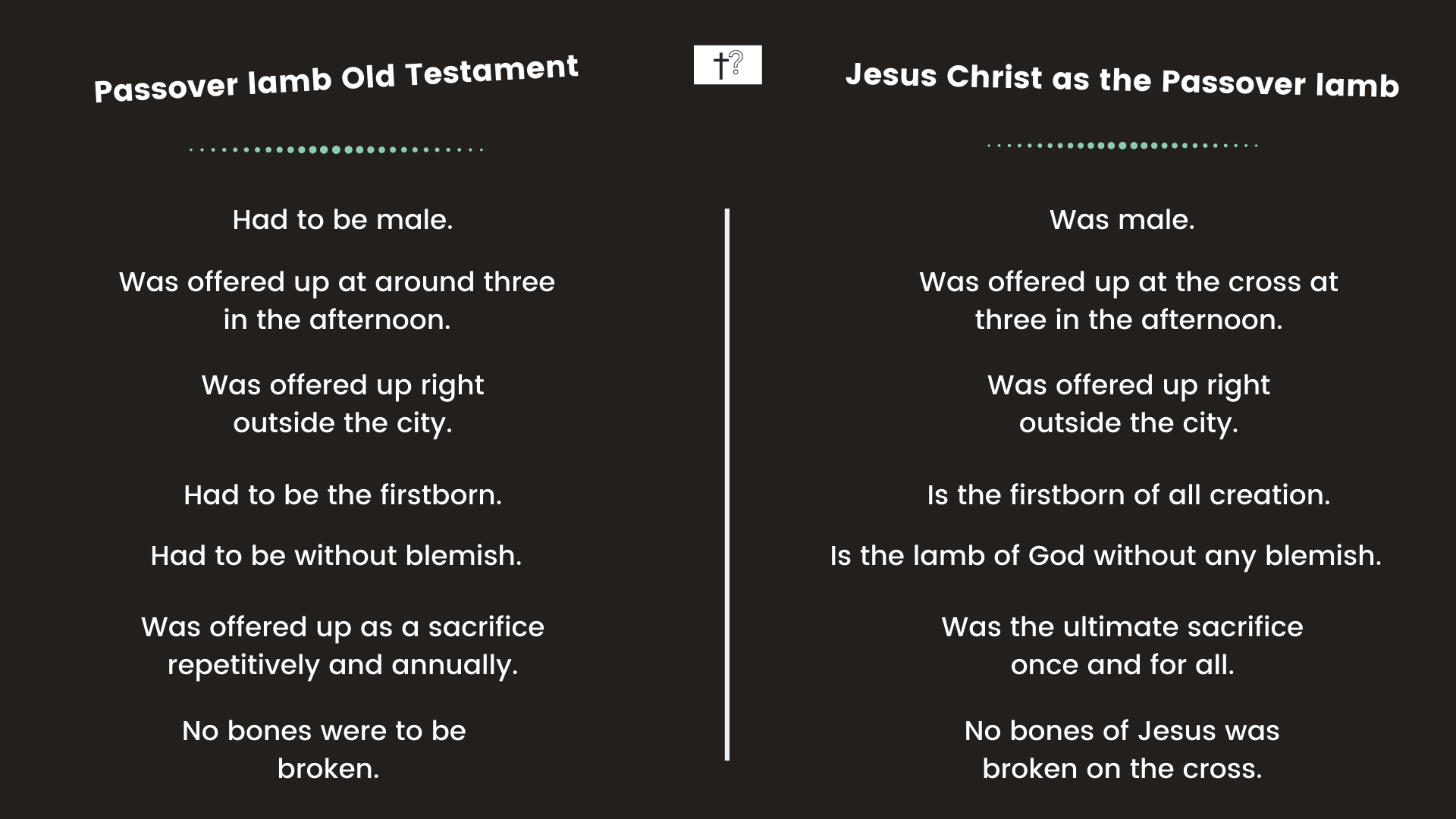What does it mean that Jesus is the passover lamb?
In the Old Testament, the Israelites (while still under Egyptian bondage) were instructed to sacrifice a lamb and apply its blood to their doorposts (to protect their firstborn from the Angel of Death) – Exodus 12.
The Passover lamb in Exodus was a critical symbol of salvation and protection for the Israelites in Egypt and it became such a memorable event in the community that they celebrated it annually as a festival called the Passover.
In the New Testament, Jesus is referred to as the Passover lamb, but what is the significance of this?
John 1:29 (NKJV)
The next day John saw Jesus coming toward him, and said, “Behold! The Lamb of God who takes away the sin of the world!
In order to better understand its relevance, let’s compare Jesus to the Passover lamb of the Old Testament:
John’s the Baptist calling Christ as the Lamb of God signified the beginning of a new covenant. While the Passover lamb brought temporary atonement, Jesus, as the Lamb of God, offers permanent atonement for sin, establishing a new relationship between God and humanity based on grace and mercy.
Unlike the yearly sacrifice of a lamb, Jesus’ crucifixion was a singular, all-encompassing sacrifice. His death and the shedding of His blood serve as the means of redemption for humanity, mirroring the protective symbolism of the Passover festival.
Jesus, as the Passover lamb, represents the fulfillment of ancient prophecy and is foundational to the Christian faith. His sacrifice marks a pivotal moment in history, transforming the meaning of Passover from a Jewish tradition into a profound symbolism of redemption and salvation.
For Christians today, understanding Jesus as the Passover lamb deepens the appreciation of His sacrificial death and its significance. It emphasizes the continuity between the Old and New Testaments and highlights the transformative power of Jesus’ atonement in the life of believers.

